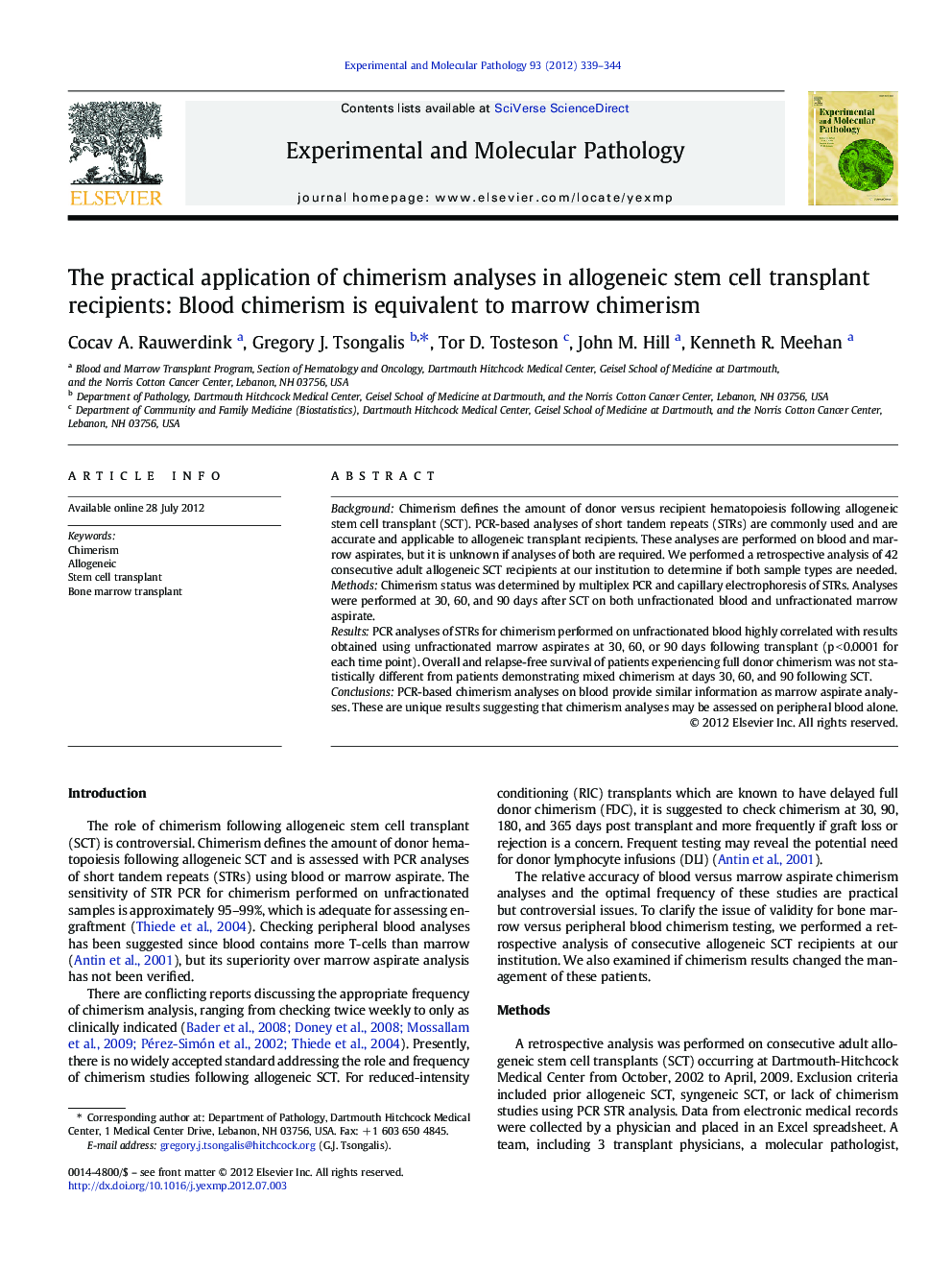| Article ID | Journal | Published Year | Pages | File Type |
|---|---|---|---|---|
| 2775176 | Experimental and Molecular Pathology | 2012 | 6 Pages |
BackgroundChimerism defines the amount of donor versus recipient hematopoiesis following allogeneic stem cell transplant (SCT). PCR-based analyses of short tandem repeats (STRs) are commonly used and are accurate and applicable to allogeneic transplant recipients. These analyses are performed on blood and marrow aspirates, but it is unknown if analyses of both are required. We performed a retrospective analysis of 42 consecutive adult allogeneic SCT recipients at our institution to determine if both sample types are needed.MethodsChimerism status was determined by multiplex PCR and capillary electrophoresis of STRs. Analyses were performed at 30, 60, and 90 days after SCT on both unfractionated blood and unfractionated marrow aspirate.ResultsPCR analyses of STRs for chimerism performed on unfractionated blood highly correlated with results obtained using unfractionated marrow aspirates at 30, 60, or 90 days following transplant (p < 0.0001 for each time point). Overall and relapse-free survival of patients experiencing full donor chimerism was not statistically different from patients demonstrating mixed chimerism at days 30, 60, and 90 following SCT.ConclusionsPCR-based chimerism analyses on blood provide similar information as marrow aspirate analyses. These are unique results suggesting that chimerism analyses may be assessed on peripheral blood alone.
